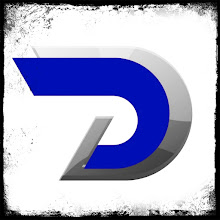I get asked a lot to explain what blockchain and cryptocurrency are.What are its benefits and risks? How will it affect us? Although it wouldtake a book to really explain in great detail all of this, I've put togetherthis short post in hopes that this helps somewhat. There is a lot more tothis tech, but it requires a lot of background understanding, but, at thecore is what is listed below.Simply put, blockchain is basically a distributed database that cannot betampered with, and tokens (Bitcoin) are generated by this blockchain. Itis hacking and counterfeiting proof.That's the super short description. Now, assuming we are talking aboutBitcoin and its blockchain, here are some of its properties.
Pros:Bitcoin is decentralized, meaning it is not housed in one location.Bitcoin does not have a central authority. No government or companyowns or runs it.There is no central server; the bitcoin network is peer-to-peer, meaningeveryone can participate in the network.There is no central storage; the bitcoin ledger is distributed.The ledger is public; anybody can store it on their computer.There is no single administrator, the ledger is maintained by a networkof equally privileged miners, that validate transactions.Anybody can become a miner.Any additional transaction blocks to the ledger are maintained throughcompetition. Until a new block is added to the ledger, it is not knownwhich miner will create the block.The issuance of bitcoins is decentralized. They are issued as a rewardfor the creation of a new block.Anybody can create a new bitcoin address (a counterpart of a bankaccount) without needing any approval.Anybody can send a transaction to the network without needing anyapproval; the network merely confirms that the transaction is legitimate.Anonymity (or pseudo-anonymity) of a person is maintained on ablockchain.
Definitions:BlockchainPublic record-keeping book, database or ledger thatrecords transactions.Block-blockchainsAre broken up into blocks. Each block containing alist of transaction made duringa time period and each block containg acryptographic key or hash of the previous block up to the genesis blockof the chain.NodesNetwork of communicating nodes, or servers, running bitcoinsoftware maintains the blockchain.Network nodesCan validate transactions and then add them to theircopy of the blockchain, and then broadcast these ledger additions toother nodes every 10 mins.MiningIn order to determine randomly who gets to write a block to theblockchain nodes or miners, do proof-of-work. This PoW requires minersto find a number (or lottery) called a nonce.WalletsContains both private and public addresses for transactions,which are like an email address and password.TokensEntries on blockchain that represent transactions and can betraded.CryptocurrencyTokens traded as money.Smart-ContractsEntries on blockchain that are programmable codeand that represent and behave as contracts.Cons (Criticism):Forking debasement, meaning anyone can copy the blockchain codeand create their own blockchain and money.Fraud at Exchanges, with crypto keys and funds easily stolen ormanipulated.Mining pools controlled and manipulated by big tech and people withmoney.Energy consumption. The amount of energy needed to mine crypto is staggering!Open-source developers need approval by programmers in order tomake changes by the people in charge of the project. Those thatapprove can be corrupted and can add their own code.Over 50% node attack can change ledger contents. This can happen if allminers collude with each other.Blockchains can be modified via forking with additional layers, muchlike what happened to bitcoin in 2017 and when the Lightning Network2nd layer protocol was added, that allowed the bypass of blockchainconsensus.There are more... just to name a few.There are institutional blockchains and variants I call hybrids. Here aresome of the features:Hybrid systems blockchains are centralized.Hybrid systems have central authorities.Hybrid systems are not P2P and have central servers.Hybrid systems storage is distributed only on centralized servers.Hybrid systems storage is possible if you are a node, and nodes/serversare housed in central locations and expensive.Miners are servers/nodes and they can all be pooled, managed andcentralized.There is no mining in Hybrid systems and if the node belongs to a bankor any other central system.In a hybrid system the centralized system is not obliged to use proof ofwork for competition.In Hybrid systems, they can mint as many coins as they wish anytimethey choose.In Hybrid systems, you only get public address key (bank account) butnot the private key.In hybrid systems, there may be a need to be approved or some contractfulfillment before a transaction can take place and recorded.In hybrid systems, there is no anonymity.And then there is the big issue l have, is what happens to yourcryptocurrency if it is delisted from all exchanges, blocked at vendingmachines and blocked by online merchants? Especially when the centralbanks create their own version of crypto in a cashless society?Whata happens if the entire supply chain becomes digitally inaccessible to yourcrypto?Applications - such as human capital bonds.Commoditization and tokenization of nature.Tokenizing behavior such as workforce and educational space.Buying and selling crypto as "gas" for smart-contract networks, such asAl-as-a-Service (AaaS) that requires crypto ETH for fulfillment of Al usedin surveillance state operations and systems.Again, these are just some of the pros, cons and concerns ofblockchains. There are many more, but it requires more discussion.
....end



















